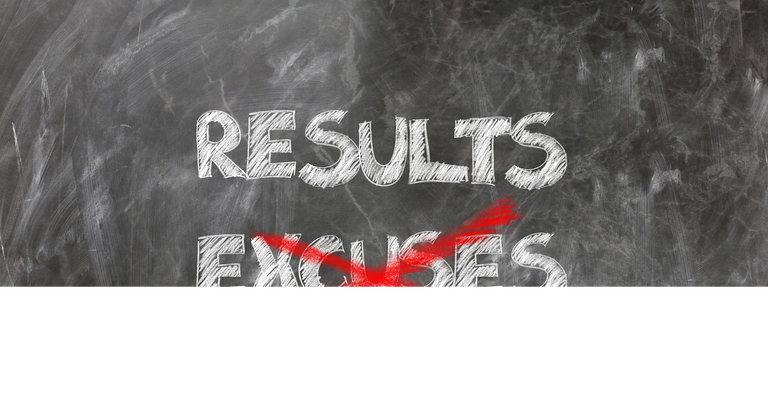Experimentation is the backbone of progress and innovation. It is a dynamic process that propels individuals, businesses, and societies forward, pushing the boundaries of what is known and understood. To experiment is to embark on a journey of discovery, embracing the uncertainty and unpredictability that come with the pursuit of new ideas and solutions.
The first step in this process is the experiment itself. It is an intentional act of exploration, a deliberate departure from the familiar and the known. Whether in the realm of science, technology, business, or personal development, experiments are the catalysts for change. They can take various forms – from scientific trials and technological prototypes to entrepreneurial ventures and personal challenges. Each experiment is a step into the unknown, a leap of faith driven by the desire to uncover something new.
experimentation is not without its risks. Failure is an inherent part of the process, an unavoidable companion on the road to discovery. It is in the face of failure that the true test of character begins. Embracing failure is not an admission of defeat but a recognition of the invaluable lessons it brings. Failure is a powerful teacher, offering insights and wisdom that success often conceals. It teaches resilience, adaptability, and the importance of perseverance in the face of adversity.
Learning from failure is the second crucial component of the cycle. It requires introspection, humility, and a willingness to confront one's mistakes and shortcomings. It is through the lens of failure that individuals and organizations gain a deeper understanding of themselves and their endeavors. The lessons learned from failure become the building blocks of future success, shaping strategies, decisions, and actions in a way that mitigates the risk of repeating past mistakes.
Learning, however, is not a passive process. It demands an active engagement with the lessons failure presents. It requires the ability to extract meaning from setbacks and apply that knowledge in a way that fosters growth and improvement. The willingness to learn from failure transforms it from a roadblock into a stepping stone, propelling individuals and organizations forward with newfound wisdom and insight.
this iterative process is the engine of progress. It is what separates those who stagnate from those who evolve. Repetition is not about mindless persistence in the face of insurmountable odds; rather, it is a deliberate and strategic commitment to the cycle of experimentation and learning. It is the recognition that each iteration brings refinement and progress, inching closer to the desired outcome.
Thomas Edison, the prolific inventor, famously said, "I have not failed. I've just found 10,000 ways that won't work." His attitude encapsulates the spirit of experimentation – a relentless pursuit of solutions, even in the face of repeated setbacks. Edison's inventions, including the electric light bulb, emerged from a process of trial and error that exemplifies the power of persistence in the face of failure, the importance of experimentation is equally pronounced. Successful entrepreneurs understand that not every idea will lead to success, but each failure brings them closer to the winning formula. Companies like Apple, Google, and Amazon are renowned for their culture of experimentation, where failure is not stigmatized but seen as a necessary step toward innovation and growth.
The cycle of experiment, fail, learn, and repeat is a blueprint for self-improvement. It applies to learning new skills, overcoming challenges, and pursuing goals. Each attempt, even if met with failure, provides an opportunity for growth and development. The resilience and adaptability cultivated through this process become invaluable assets in navigating the complexities of life.
the cycle of experiment, fail, learn, and repeat is a dynamic and transformative process that underpins progress and innovation. It requires courage to step into the unknown, resilience to face failure, humility to learn from mistakes, and determination to iterate and improve. Embracing this cycle is not a guarantee of instant success, but it is a proven method for unlocking potential and achieving meaningful progress.
تجربہ ترقی اور اختراع کی ریڑھ کی ہڈی ہے۔ یہ ایک متحرک عمل ہے جو افراد، کاروبار اور معاشروں کو آگے بڑھاتا ہے، جو جانا اور سمجھا جاتا ہے اس کی حدود کو آگے بڑھاتا ہے۔ تجربہ کرنے کا مطلب دریافت کے سفر کا آغاز کرنا ہے، اس غیر یقینی صورتحال اور غیر متوقع پن کو اپنانا ہے جو نئے آئیڈیاز اور حل کے حصول کے ساتھ آتی ہے۔
اس عمل کا پہلا مرحلہ خود تجربہ ہے۔ یہ جان بوجھ کر دریافت کرنے کا عمل ہے، جان بوجھ کر جانے والے اور جاننے والوں سے الگ ہونا۔ چاہے سائنس، ٹیکنالوجی، کاروبار، یا ذاتی ترقی کے دائرے میں، تجربات تبدیلی کے لیے اتپریرک ہیں۔ وہ مختلف شکلیں لے سکتے ہیں - سائنسی آزمائشوں اور تکنیکی پروٹو ٹائپ سے لے کر کاروباری منصوبوں اور ذاتی چیلنجوں تک۔ ہر تجربہ نامعلوم کی طرف ایک قدم ہے، ایمان کی ایک چھلانگ جو کچھ نیا کرنے کی خواہش سے چلتی ہے۔
تجربہ اس کے خطرات کے بغیر نہیں ہے۔ ناکامی عمل کا ایک موروثی حصہ ہے، دریافت کے راستے پر ایک ناگزیر ساتھی ہے۔ ناکامی کے بعد ہی کردار کا حقیقی امتحان شروع ہوتا ہے۔ ناکامی کو گلے لگانا ہار کا اعتراف نہیں بلکہ اس سے ملنے والے انمول اسباق کی پہچان ہے۔ ناکامی ایک طاقتور استاد ہے، جو بصیرت اور حکمت پیش کرتی ہے جسے کامیابی اکثر چھپا دیتی ہے۔ یہ لچک، موافقت، اور مصیبت کا سامنا میں ثابت قدمی کی اہمیت سکھاتا ہے۔
ناکامی سے سیکھنا سائیکل کا دوسرا اہم جزو ہے۔ اس کے لیے خود شناسی، عاجزی، اور اپنی غلطیوں اور کوتاہیوں کا مقابلہ کرنے کے لیے آمادگی کی ضرورت ہے۔ یہ ناکامی کی عینک کے ذریعے ہی ہے کہ افراد اور تنظیمیں اپنے اور اپنی کوششوں کے بارے میں گہری سمجھ حاصل کرتی ہیں۔ ناکامی سے سیکھے گئے اسباق مستقبل کی کامیابی کے بنیادی ستون بن جاتے ہیں، حکمت عملیوں، فیصلوں اور اقدامات کو اس انداز سے تشکیل دیتے ہیں کہ ماضی کی غلطیوں کو دہرانے کے خطرے کو کم کیا جائے۔
تاہم، سیکھنا ایک غیر فعال عمل نہیں ہے۔ یہ اسباق کی ناکامی کے ساتھ ایک فعال مشغولیت کا مطالبہ کرتا ہے۔ اسے ناکامیوں سے معنی نکالنے اور اس علم کو اس طریقے سے لاگو کرنے کی صلاحیت کی ضرورت ہوتی ہے جو ترقی اور بہتری کو فروغ دیتا ہے۔ ناکامی سے سیکھنے کی آمادگی اسے ایک رکاوٹ سے ایک قدمی پتھر میں بدل دیتی ہے، جو افراد اور تنظیموں کو نئی حکمت اور بصیرت کے ساتھ آگے بڑھاتی ہے۔
تجربہ کریں، ناکام ہوں، سیکھیں، اور دہرائیں۔ یہ تکراری عمل ترقی کا انجن ہے۔ یہ وہی ہے جو ان لوگوں سے الگ کرتا ہے جو جمود کا شکار ہیں۔ تکرار ناقابل تسخیر مشکلات کا سامنا کرتے ہوئے بے عقل ثابت قدمی کے بارے میں نہیں ہے۔ بلکہ، یہ تجربات اور سیکھنے کے چکر کے لیے ایک دانستہ اور حکمت عملی کا عہد ہے۔ یہ اس بات کی پہچان ہے کہ ہر تکرار مطلوبہ نتائج کے قریب تر ہو کر اصلاح اور ترقی لاتی ہے۔
مشہور موجد تھامس ایڈیسن نے مشہور کہا، "میں ناکام نہیں ہوا، میں نے ابھی 10,000 طریقے تلاش کیے ہیں جو کام نہیں کریں گے۔" اس کا رویہ تجربات کے جذبے کو سمیٹتا ہے – بار بار آنے والی ناکامیوں کے باوجود بھی حل کی مسلسل تلاش۔ ایڈیسن کی ایجادات، بشمول الیکٹرک لائٹ بلب، آزمائش اور غلطی کے ایک ایسے عمل سے نمودار ہوئیں جو ناکامی کے وقت استقامت کی طاقت کی مثال دیتی ہیں، تجربات کی اہمیت بھی اتنی ہی واضح ہے۔ کامیاب کاروباری لوگ سمجھتے ہیں کہ ہر خیال کامیابی کا باعث نہیں بنتا، لیکن ہر ناکامی انہیں جیتنے والے فارمولے کے قریب لے جاتی ہے۔ ایپل، گوگل، اور ایمیزون جیسی کمپنیاں اپنے تجربات کی ثقافت کے لیے مشہور ہیں، جہاں ناکامی کو بدنام نہیں کیا جاتا بلکہ اسے جدت اور ترقی کی جانب ایک ضروری قدم کے طور پر دیکھا جاتا ہے۔
تجربہ، ناکام، سیکھنے، اور دہرانے کا چکر خود کو بہتر بنانے کا نقشہ ہے۔ یہ نئی مہارتیں سیکھنے، چیلنجوں پر قابو پانے، اور اہداف کو حاصل کرنے پر لاگو ہوتا ہے۔ ہر کوشش، چاہے ناکامی ہی کیوں نہ ہو، ترقی اور ترقی کا موقع فراہم کرتی ہے۔ اس عمل کے ذریعے پیدا ہونے والی لچک اور موافقت زندگی کی پیچیدگیوں کو نیویگیٹ کرنے میں انمول اثاثہ بن جاتی ہے۔
تجربہ، ناکام، سیکھنے، اور دہرانے کا چکر ایک متحرک اور تبدیلی کا عمل ہے جو ترقی اور جدت کی بنیاد رکھتا ہے۔ نامعلوم میں قدم رکھنے کے لیے ہمت، ناکامی کا سامنا کرنے کے لیے لچک، غلطیوں سے سیکھنے کے لیے عاجزی، اور دہرانے اور بہتر بنانے کے لیے عزم کی ضرورت ہوتی ہے۔ اس سائیکل کو اپنانا فوری کامیابی کی ضمانت نہیں ہے، لیکن یہ صلاحیت کو کھولنے اور بامعنی ترقی کے حصول کے لیے ایک ثابت شدہ طریقہ ہے۔

